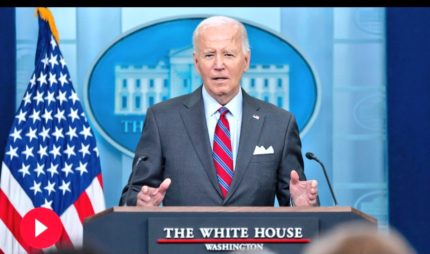US President Joe Biden has authorized the delivery of anti-personnel landmines to Ukraine, marking a significant escalation in U.S. military support amid Ukraine’s prolonged battle against Russian aggression. According to a U.S. defense official who spoke on condition of anonymity, the mines are expected to arrive soon and will be utilized exclusively on Ukrainian soil. The official further emphasized Ukraine’s commitment to deploying the mines away from densely populated areas to minimize civilian risks.
The provision of these landmines aims to slow Russian advancements in eastern Ukraine, where Moscow’s forces have made steady gains in recent months. These mines, known as “non-persistent” types, deactivate after a set period—ranging from four hours to two weeks—posing less long-term risk compared to traditional mines. This move reflects a calculated response to Russia’s liberal use of landmines since its full-scale invasion began in February 2022, despite international criticism of such tactics.
Rising Tensions: U.S. Embassy Closure and Russian Retaliation
The U.S. State Department has announced the temporary closure of its embassy in Kyiv, citing specific intelligence about a potential airstrike on November 20. In a statement, the department urged U.S. citizens in Ukraine to remain prepared for immediate sheltering in case of air alerts. This heightened caution follows previous warnings during critical occasions like Ukraine’s Independence Day in August.
Meanwhile, the conflict saw an escalation overnight, with both Ukraine and Russia reporting significant drone attacks on their territories. Although details on casualties remain unclear, the strikes underscore the ongoing intensity of the war. Concurrently, Russian President Vladimir Putin approved revisions to the nation’s nuclear doctrine, declaring that an attack from a non-nuclear state backed by a nuclear power would be treated as a joint assault. This shift drew sharp criticism from the U.S., with State Department spokesperson Matthew Miller condemning Russia’s “irresponsible nuclear rhetoric.”
Ukraine’s Tactical Need for Landmines
Ukraine’s eastern frontlines continue to witness relentless pressure from Russian forces employing small, high-frequency assaults. Serhiy Kuzan of the Ukrainian Security and Cooperation Centre highlighted the challenges posed by these tactics, where squads of 3-5 soldiers, often on motorbikes, infiltrate Ukrainian positions, causing exhaustion among defenders.
For Ukraine, landmines have become a critical defense mechanism to impede Russian advances across rural battlefields like the Donbas. Ukrainian forces argue that deploying “non-persistent” mines in evacuated areas of low civilian density is a necessary strategy. “We need more anti-personnel mines,” Kuzan stressed, underscoring their role in defending besieged towns such as Chasiv Yar and Kurakhove.
International Implications and Controversy
The Biden administration’s decision to supply anti-personnel mines has sparked debate due to the controversial nature of such weapons. While the U.S. and Russia are not signatories to the Ottawa Convention banning anti-personnel mines, Ukraine’s use of these arms reflects a desperate effort to counterbalance Russia’s overwhelming manpower and artillery advantages.
Human rights groups have expressed concern over the humanitarian risks posed by landmines, even non-persistent ones. However, Kyiv argues that these weapons are indispensable for stemming Russia’s advance, particularly in sparsely populated areas. As the war grinds on, the international community remains divided over the ethical implications versus the tactical necessity of landmine deployment in Ukraine’s fight for sovereignty.
Broader Implications for U.S.-Ukraine Military Cooperation
The approval of anti-personnel land mines represents the Biden administration’s latest effort to strengthen Ukraine’s defensive capabilities before the administration transitions to Donald Trump on January 20. Washington has already provided Ukraine with longer-range Army Tactical Missile System (ATACMS) missiles, which were recently used in strikes on Russian targets in the Bryansk region.
Russia has criticized these actions as escalatory. Foreign Minister Sergei Lavrov accused the U.S. of intensifying the conflict, while President Vladimir Putin responded by amending Russia’s nuclear doctrine. The new policy considers an attack by a non-nuclear state, if supported by a nuclear power, as a joint assault warranting a nuclear response. This development raises the stakes in an already volatile geopolitical landscape.














